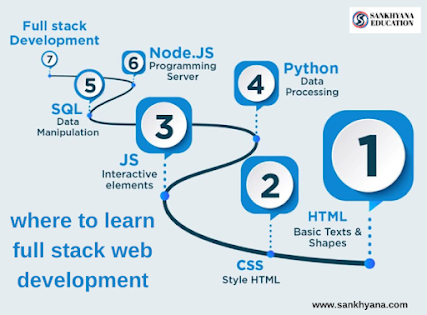How Data Science Is Changing the World ?
How Data Science Is Changing the World ?
The Transformative Power of Data Science: Changing the World, One Insight at a Time
Introduction
In the digital age, data has become the new currency. With the exponential growth of data generation, collection, and storage, the field of data science has emerged as a game-changer, revolutionizing industries and reshaping the world as we know it. This blog explores how data science is changing the world, from driving innovation to improving decision-making and addressing complex global challenges.
1. Unearthing Insights from Data
Data science involves the application of advanced analytical techniques to extract meaningful insights from massive and complex datasets. This capacity to turn raw data into actionable insights has transformed industries across the board. For instance, in healthcare, data-driven analyses have led to the discovery of new treatment methods and personalized medicine, significantly improving patient outcomes. In marketing, businesses can now understand customer behavior at a granular level, leading to more effective campaigns and better customer engagement.
2. Enabling Informed Decision-Making
Decisions made in the modern world are increasingly data-driven. Data science equips decision-makers with the tools to make informed choices based on evidence rather than intuition. This is evident in fields like finance, where algorithms analyze market trends and economic indicators to inform investment strategies. Governments also utilize data science to enhance public policy decisions, making governance more effective and responsive to citizens' needs.
3. Revolutionizing Industries
The impact of data science on various industries is profound. In retail, it has given rise to predictive analytics, allowing businesses to forecast demand, optimize inventory, and personalize shopping experiences. Manufacturing has embraced the concept of Industry 4.0, where data from sensors and machines are used to enhance efficiency and reduce downtime. The transportation sector has seen the emergence of ride-sharing platforms and autonomous vehicles, all driven by data science innovations.
4. Fostering Innovation
Data science fuels innovation by uncovering patterns, trends, and opportunities that were previously hidden. Startups and established companies alike are leveraging data to develop groundbreaking products and services. For instance, the rise of fintech is partially attributed to data-driven insights that enable the creation of innovative financial products, such as peer-to-peer lending and robo-advisors.
5. Addressing Global Challenges
The world faces numerous complex challenges, from climate change to healthcare disparities. Data science plays a pivotal role in addressing these issues by analyzing vast datasets to identify solutions. Climate scientists use data modeling to predict the impacts of various interventions, while public health experts rely on data to track disease outbreaks and develop effective strategies for containment.
6. Ethical Considerations
As data science becomes more integrated into our lives, ethical considerations become paramount. Privacy concerns, bias in algorithms, and data security are some of the challenges that need to be addressed. Striking a balance between the benefits of data-driven insights and ensuring individual rights is crucial for responsible data science practice.
Conclusion
Data science is not just a technological revolution but a societal one. Its impact spans industries, governments, and individuals, changing how we make decisions, conduct business, and address global challenges. As we navigate this data-driven world, it's important to harness the power of data science ethically and responsibly, ensuring that the benefits are shared by all of humanity. The journey has just begun, and the possibilities are limitless as data science continues to shape the world in unprecedented ways.
.png)

.png)

Comments
Post a Comment